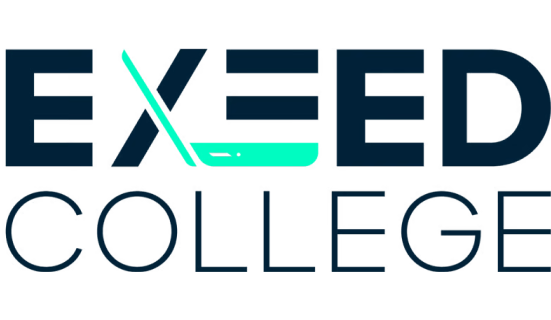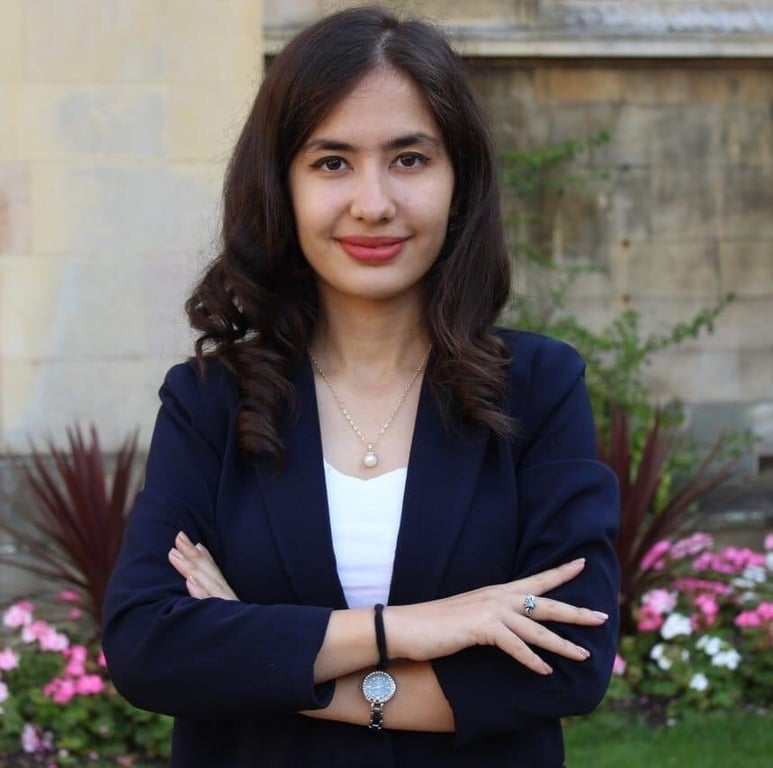





The course teaches students comprehensive and specialized subjects in computer science; it develops skills in critical thinking and strategic planning for changing and fast-paced environments, including technological and operational analysis; and it develops competences in leadership, including autonomous decision-making, and communication with team members, stakeholders, and other members of a business.
Target Group
The course is suited for undergraduate students considering a career in technology or the innovation (start-up) economy. The overall programme is designed for those with little or no background in computer programming and only EQF 4 level mathematical knowledge is required. The target group should be prepared to pursue substantial academic studies fitting to the EQF 5-6 level.
Mode of attendance
Full-Time and Part-Time
Structure of the programme
Please note that this structure may be subject to change based on faculty expertise and evolving academic best practices. This flexibility ensures we can provide the most up-to-date and effective learning experience for our students.
The BS in Computer Science degree combines asynchronous components (lecturevideos, readings, and assignments) and synchronous meetings attended by students and a teacher during a video call. Asynchronous components support the schedule of students from diverse work-life situations, and synchronous meetings provide accountability and motivation for students.
The BS in Computer Science is composed of 3 tiers:
TIER ONE (60 ECTS)
TIER TWO (60 ECTS)
TIER THREE (60 ECTS)
Each module consists of both regular units and final units devoted to synthetic summaries and examination. Students typically complete one assignment per unit, which is the topic of the synchronous discussion. Final assessment units allow students to deepen their cumulative, synthetic grasp of the course contents.
Grading System
Scale: 0-100 points
Components: 60% of the mark derives from the average of the assignments, and 40% of the mark derives from the cumulative examination
Passing requirement: minimum of 60% overall
Dates of Next Intake
Rolling admission
Pass rates
Cohort pass rates will be publicised in the next cycle, contingent upon ensuring sufficient student data for anonymization.
Identity Malta’s VISA requirement for third country nationals: https://www.identitymalta.com/unit/central-visa-unit/






Optimizing Your Learning aims to transform incoming first year students into effective and empowered self-directed learners. In the modern world, long-term academic, professional, and personal success is driven by the ability of individuals to take control of their learning. Therefore, this course helps students to develop the knowledge, skills, and mindsets necessary to take ownership of their learning and build their self-efficacy. During the course, students will develop competence in skills that are most critical for effective self-directed and self-regulated learning (i.e. self-management, self-monitoring, and self-modification), while also learning how to use learning strategies to maximize their overall learning efficiency and efficacy. They will also utilize the Emotional Intelligence framework to explore their identity, self-image, motivation, and self-regulation skills, to support their development as self-directed learners. The course culminates in the creation of a personal learning charter that will help guide students in their learning throughout their undergraduate studies, which can also be applied to their learning activities in other realms of their lives.










This course helps students develop the ability to think logically and mathematically. It prepares students for more advanced courses in algorithms and discrete mathematics. An emphasis is placed on the ability to reason logically, and effectively communicate mathematical arguments. The course begins with a brief review of number systems, and their relevance to digital computers. Students review the algebraic operations necessary to perform programming functions. In the unit on logic and proofs, students learn to identify, evaluate, and make convincing mathematical arguments. They are introduced to formal logic, and methods for determining the validity of an argument (truth tables, proofs, Venn Diagrams). Students learn to decompose problems using recursion and induction, and how these methods are used in real-world computational problems. The final unit is an introduction to counting and probability. Topics covered include principles of counting, permutations, combinations, random variables, and probability theory. Throughout the course, students apply their knowledge by solving logic puzzles and creating programs in Python.








Communicating for Success supports students in developing communication skills that are essential for success in their personal and professional lives. The course will focus on close reading, written communication, verbal communication, and non-verbal communication skills. An emphasis will be placed on weekly submissions, and peer and instructor feedback, to allow students to practice and improve their skills. Students will learn how to effectively read and analyze texts as a precursor to developing their own written communication skills. They will then practice crafting clear communications by learning about topics such as writing structure and organization, grammar, audience awareness, and the iterative writing process. Next, students move on to verbal communication, and will learn how to confidently and skillfully deliver effective oral presentations. Finally, students will learn about the impact of non-verbal communication on how their messages are received. The course will culminate in a project that will require students to develop and implement a strategy for communicating a technical topic to a non-technical audience.











The course helps students develop an appreciation for programming as a problem-solving tool. It teaches students how to think algorithmically and solve problems efficiently, and serves as the foundation for further computer science studies.
Using a project-based approach, students will learn to manipulate variables, expressions, and statements in Python, and understand functions, loops, and iterations. Students will then dive deep into data structures such as strings, files, lists, dictionaries, tuples, etc. to write complex programs. Over the course of the term, students will learn and apply basic data structures and algorithmic thinking. Finally, the course will explore design and implementation of web apps in Python using the Flask framework.
Throughout the course, students will be exposed to abstraction and will learn a systematic way of constructing solutions to problems. They will work on team projects to practice pair programming, code reviews, and other collaboration methods common to industry. The course culminates in a final group project and presentation during which students demonstrate and reflect on their learning.








This course builds on Web Foundations, and provides a comprehensive introduction to client and server-side development for the web. In this project-based course, students will work independently to build a web application, and progressively apply new knowledge to their application. Students deepen their knowledge of HTML and learn advanced CSS, including how to use CSS variables and modern frameworks for motion and interaction. They learn about accessible web design, and how to create websites and apps that work well on mobile devices, and that support use of assistive technologies like screen readers. Students will build the front-end of a web application using HTML, CSS and JavaScript then write a supporting back-end using either a JavaScript or Python framework. In doing so, they will demonstrate knowledge of the request-response structure, database management, and JSON-based APIs. Students will also apply technical communication skills by writing technical specs, drafting architecture diagrams, and documenting APIs.









Industry Experience is a form of experiential learning that enables students to apply their academic knowledge in a professional context. Students work to build software that meets the needs of a professional organization by completing either (1) an approved internship, or (2) a product studio. During the internship, students work on tasks that meet the needs of the organization, guided by an on-site supervisor. Internships must entail significant, substantial computer science. In the studio, external clients (e.g., businesses, non-profits) sponsor a software development project completed by students. A typical end result is a prototype of or a fully functional software system ready for use by the clients. These projects are completed by teams of 4-6 students, who meet with the client weekly to share progress and get feedback. Students complete online modules under the supervision of a faculty advisor. Pre-work includes instruction in communication, goal-setting, and professional development. During the industry experience, students submit bi-weekly written reflections on their personal goals, challenges, and, for the studio, team feedback. At the end of the term, students obtain written feedback from their organization supervisor. They also submit a final report which describes the problem statement, approaches/methods used, deliverables, and skills gained. Industry Experience culminates in a final presentation which is shared as a public blog post.










The module's primary learning outcomes are for students to classify different types of operating systems, including Windows, macOS, and Linux, and to describe the functions of an operating system, such as process and memory management.Through the course, students will learn about the architecture and components of operating systems, including user interfaces, device drivers, and file systems. They will also gain an understanding of system calls and APIs, and how to use them to interact with an operating system. By the end of the module, students will have gained a comprehensive understanding of operating systems, their functions, and their importance in computer science and AI. They will be able to identify the different types of operating systems and describe their functions and features. This knowledge will prepare them for more advanced courses in the curriculum that involve developing AI and ML applications on different operating systems.










This module introduces the fundamentals of Artificial Intelligence (AI) and Machine Learning (ML). Students will learn the definition of AI and ML, their evolution, and their applications in various fields. They will also explore the different types of machine learning algorithms, including supervised, unsupervised, and reinforcement learning. Through hands-on exercises and case studies, students will gain practical knowledge and experience in applying machine learning algorithms to real-world problems.Moreover, this module covers the principles of selecting the appropriate machine learning algorithm for a given problem. Students will learn about the factors that influence algorithm selection, such as data type, problem complexity, and performance requirements. They will also explore the principles of model training, validation, and testing, and gain practical knowledge and experience in evaluating machine learning models. By the end of this module, students will have a thorough understanding of AI and ML, be able to identify different types of machine learning algorithms, and select the appropriate algorithm for a given problem.









Through the course, students will recognize emerging technologies in AI, describe their potential impact on society and industry, and discuss their ethical and social implications. By the end of the module, students will have gained a comprehensive understanding of emerging technologies in AI and their impact, preparing them to make informed decisions about the adoption and development of AI technologies in their future roles.









The module's primary learning outcomes are for students to identify different types of database management systems, describe their components, and explain the importance of database normalization. Through the course, students will learn about database design, normalization, and optimization. They will also learn how to use SQL to manipulate and retrieve data from databases. The module emphasizes hands-on learning through database design and development projects. By the end of the module, students will have gained a comprehensive understanding of database management systems and their importance in AI and ML applications. They will be able to identify different types of database management systems and their components, and apply the concepts of database normalization to design and develop efficient databases. This knowledge will prepare them for more advanced courses in the curriculum and for database management roles in the industry.









This course explores computing beyond software. Students will go a level deeper to better understand the hardware and see how computers are built and programmed. It is modelled on the popular, project based “Nand to Tetris” textbook, which walks learners through building a computer from scratch. It aims to help students become better programmers by teaching the concepts underlying all computer systems. The course integrates many of the topics covered in other computer science courses, including algorithms, computer architecture, operating systems, and software engineering.
Students will learn how to build a computer system using progressive steps. The course starts with a brief review of Boolean algebra, and an introduction to logic gates. Students design a set of elementary logic gates using a Hardware Description Language. They then build chips to perform arithmetic and logical operations and build the computer’s main memory unit. Subsequently, students learn to write low-level machine language, and build a CPU to create a fully functional computer system. Finally, students implement a virtual machine, compiler, and basic operating system. Projects are spread out evenly throughout the course, and are completed in pairs.
By the end of the course, students will develop a strong understanding of the relationships between the architecture of computers, and software that runs on them.









This course builds on Mathematical Thinking and provides the mathematical foundation needed for many fields of computer science, including data science, machine learning, and software engineering. It focuses on core mathematical areas that are essential in the toolkit of every computer scientist: logic, combinatorics and probability, set theory, graph theory, and elementary number theory. Each topic is covered with a focus on applications in modern computer science. It begins with a unit on logic which builds on previous knowledge, with an emphasis on writing readable and precise code. Probability and combinatorics focuses on analysis of algorithms and reliability. There is an in-depth focus on graph theory, and students explore the numerous applications of graph theory in computer science (data mining, clustering, networking, etc.). Finally, the course introduces number theory, beginning with fundamental results such as the Euclidean Algorithm then applications in cryptography. The course culminates in a final group project where students explore original mathematical sources, and describe the historical proof techniques of a discrete math topic.









Engineering for Development, Challenge Studio 1, and Challenge Studio 2 are courses that help students investigate the role that technology can play in solving some of the world’s most intractable social and economic development challenges. In Engineering for Development, students will learn how to analyze the root causes of development challenges so that they are able to build effective technology solutions. The course aims to introduce students to selected global development challenges using the United Nations Sustainable Development Goals (SDGs) as the framework for selecting the areas of focus. Each term, the course will focus on 1- 2 subject areas (e.g. Quality Education, Affordable and Clean Energy, Climate Action), which will serve as test cases for students to develop the skills required to effectively analyze and understand complex development issues. Students will examine the system level dynamics that are at the root of these challenges, and will also analyze and critique technology related solutions that have been developed to address these challenges.






Network and Computer Security teaches students the principles and practices of security for software, systems, and networks. It aims to make students critical examiners and designers of secure systems. Students will learn the mathematical and theoretical underpinning of security systems, as well as practical skills to help them build, use, and manage secure systems. The first part of the course is focused on applied cryptography. Students learn general cryptographic protocols and investigate real-world algorithms. The second part of the course covers software and system security, including access controls, trends in malicious code, and how to detect system vulnerabilities. There is a special focus on web security, and modern practices for building secure web architectures. The final section of the course focuses on network security and covers concepts of networking, threats, and intrusion protection. Course projects will require students to think both as an attacker and as a defender, and write programs that examine security design. Students will also examine recent security and privacy breaches. Working in pairs, they’ll conduct an in-depth investigation, and give a presentation to help classmates understand its technical underpinnings and social implications.






Industry Experience 2 provides a form of experiential learning that enables students to apply their academic knowledge in a professional context. Students work to build software that meets the needs of a professional organization by completing either (1) an approved internship, or (2) a product studio. During the internship, students work on tasks that meet the needs of the organization, guided by an on-site supervisor. Internships must entail significant, substantial computer science. In the studio, external clients (e.g., businesses, non-profits) sponsor a software development project completed by students. A typical end result is a prototype of or a fully functional software system ready for an end user. These projects are completed by teams of 4-6 students, who meet with the clients or other end users weekly to share progress and get feedback. Students complete online modules under the supervision of a faculty advisor. Pre-work includes instruction in communication, goal-setting, and professional development. During the industry experience, students submit bi-weekly written reflections on their personal goals, challenges, and, for the studio, team feedback. At the end of the term, students obtain written feedback from their organization supervisor. They also submit a final report which describes the problem statement, approaches/methods used, deliverables, and skills gained. Industry Experience culminates in a final presentation which is shared as a public blog post.







This module is designed to provide students with the necessary knowledge and skills to use Python programming language for developing and implementing machine learning algorithms. Students will learn how to use popular Python libraries such as NumPy, Pandas, and Scikit-learn to perform data preprocessing, feature engineering, and model training. They will also be able to analyze and interpret machine learning results using Python and make data-driven decisions based on them. Through practical exercises and projects, students will gain hands-on experience in using Python for machine learning and be well-prepared for a career in the field of artificial intelligence and machine learning.






This module covers the fundamentals of explorative data analysis and visualization. Students will learn how to execute exploratory data analysis techniques and interpret the results to identify patterns and trends in data. They will also learn how to use data visualization tools to present and communicate insights from data. The module will teach students to compare and contrast different visualization techniques and select the appropriate one for a given data set.











In Challenge Studio 1, students will work in groups to design, develop, and test a solution to a development challenge of their choice. The focus of this course is to provide students with the tools and skills to create meaningful technology solutions(e.g. services, products) to a sustainable development problem. This course builds on the problem identification and analysis skills that were developed in Engineering forImpact, the product management skills that were developed in Product Management and Design, and the ethical engineering skills developed in Ethics in Tech. At the end of Challenge Studio 1 students will submit a Minimum Viable Product (MVP)that is ready to go to market as their final project deliverable.The course will utilize virtual studio time, where groups work together on the key incremental tasks that are required to allow them to successfully create their final project output. Studio time will be supported by lectures, seminars, and learning resources on useful skills such as human centered design, end user identification, requirements gathering, value creation, impact measurement, and creative thinking and innovation.






The Cyber Security Fundamentals covers the basics of cybersecurity threats, principles, and measures. It equips students with the knowledge to identify different types of cyber attacks, understand cybersecurity principles, and select appropriate security measures to safeguard against attacks. The course is designed to ensure that students have a foundational understanding of cybersecurity, which is increasingly important in today's digital landscape where cyber threats are becoming more sophisticated and prevalent. Furthermore, this module covers the principles of security monitoring and incident response. Students will learn to analyze and interpret security event data to detect and respond to security incidents. They will gain practical knowledge and experience in using security incident response procedures, including identification, containment, eradication, and recovery. Additionally, students will learn to document security incidents and produce incident response reports.






This course teaches the fundamentals of data structures and introduces students to the implementation and analysis of algorithms, a critical and highly valued skill for professionals. Students start by examining the basic linear data structures: linked lists, arrays, stacks, and queues. They learn how to build these structures from scratch, represent algorithms using pseudocode, and translate these into running programs. They apply these algorithms to real-life applications to understand how to make complexity and performance tradeoffs. Students will also learn how to develop algorithms for sorting and searching, use iteration and recursion for repetition, and make tradeoffs between the approaches. They will learn to estimate the efficiency of algorithms, and practice writing and refining algorithms in Python. This course emphasizes big-picture understanding and practical problem-solving in preparation for technical interviews and professional practice. Throughout the course, students will solve common practice problems, and participate in mock interview sessions. As part of their regular assignments, they will also deepen their understanding of these topics and practice technical communication by writing technical blog posts.






This course introduces students to the principles of human-computer interaction (HCI). Students explore how humans process information (perception, memory, attention) in the context of designing and evaluating interfaces. This course complements programming coursework by helping students understand how to design more usable systems. The course builds on previous knowledge of design thinking and expects students to apply the design thinking methodology as a starting point. The first part of the course focuses on designing for multiple platforms. Students create designs that solve a problem on multiple devices (e.g., web, mobile, wearables) and learn how to create a coherent design system as users move between devices. The second part of the course delves into design beyond visual user interfaces, and teaches students how to design for emerging technologies, for example, sensors, controls and ubiquitous computing. Throughout the course, students learn and apply a variety of evaluation methodologies used to measure the usability of design. This is a project-based course and, in each part, students will work in a team to design, prototype and test a solution to a problem. Students will present their designs in class sessions, and practice giving and receiving meaningful critiques.






Back End Development builds on previous knowledge of web development and security, and equips students with knowledge of server-side development so that they can become professional back-end developers and build enterprise-scale applications. Students learn to develop and deploy server-side applications with greater scope and complexity.
In this project-based course, students deepen their understanding by building the back end for a cross-platform application. The project will require implementing advanced features that add complexity and uniqueness to a server’s structure. Examples of these include payment gateways, chat rooms, full text search, WebSockets, etc. Students will design and build out all of the API endpoints needed for the application and properly secure them for use in any web or mobile front-end application. In doing so, they will explore the differences and tradeoffs between web services, APIs, and microservices. They will learn best practices for code quality including unit testing and error handling. They will also learn to efficiently document their APIs.
Students will understand key Developer Operations (DevOps) practices including environment design, testing, development controls, and uptime management. They will implement modern DevOps workflows (e.g., containers, cloud virtual machines), and learn tradeoffs between different approaches. They will set up continuous integration and continuous delivery, and explore various strategies for automated testing and application monitoring.






The Capstone Research Methods course supports students in developing critical research skills that are needed for the successful completion of their capstone project (Applied Computer Science). The course provides students with an overview of the research process and types of capstone projects that they can undertake, and includes a detailed exploration of relevant quantitative and qualitative research methods. Students will develop skills in data gathering and analysis, researching and writing an effective literature review, creating a research proposal, and managing ethical considerations with regards intellectual property rights and research with human subjects. At the conclusion of the course, students will be required to submit their formal capstone project proposal which should include details of their project scope, research question, hypothesis, and project plan. Their proposal must receive a passing mark before they are allowed to undertake the capstone course in the final term of the degree program.








This capstone course enables students to demonstrate their proficiency in the technical and human skills that they have acquired throughout their undergraduate studies. The capstone requires students to conceptualise, plan, and implement a software project to completion, and evaluate their project’s processes and outcomes. The capstone builds on the initial project scoping work that was carried out in Capstone Research Methods, which culminated in students submitting a project proposal, and gaining formal approval for their capstone Project Proposal. In this course, students will implement their proposed project with the support of a supervisor. Students with a common supervisor will be put into capstone advisory peer groups and will be required to meet with their group and supervisor regularly to update each other on their capstone progress and to provide feedback. Students will also have regular meetings with their capstone supervisor to provide additional support and guidance throughout the module. Upon completion of their capstone projects, all students will be required to participate in a capstone symposium at the end of the term, where they will present their working projects/prototypes to internal and external stakeholder.






In this course, students will discuss ethical considerations in AI, including bias and privacy concerns, and describe social implications, such as the impact on employment and the economy. Students will also identify stakeholders affected by AI and their respective interests. By the end of the module, students will have a comprehensive understanding of ethical and social considerations in AI, preparing them to make informed decisions about the development and use of AI technologies in their future roles.








This module covers the principles of Digital Marketing and Analytics, which involves the use of digital channels to promote products or services and measure their performance. Students will learn to use Google Analytics to optimize digital marketing campaigns and develop a social media marketing plan that reaches target audiences. They will gain practical knowledge and experience in understanding the principles of search engine optimization (SEO), pay-per-click advertising (PPC), email marketing, and content marketing. Additionally, students will learn to evaluate the effectiveness of digital marketing strategies using relevant analytics tools to enhance online brand presence and customer engagement. Furthermore, this module covers the principles of social media marketing and analytics and the knowledge to use social media analytics tools to evaluate the effectiveness of social media marketing strategies.







This module is designed to equip students with the fundamental concepts and techniques used in natural language processing (NLP). Students will learn how to perform basic NLP tasks such as tokenization, stemming, and part-of-speech tagging. They will also learn about machine learning models for NLP, including supervised and unsupervised learning, and how to evaluate the performance of these models. Additionally, students will gain practical experience designing and developing custom NLP models for specific applications, such as sentiment analysis and named entity recognition. By the end of this module, students will have a solid understanding of NLP and be able to apply their knowledge to real-world problems.






In this module, students will learn about the fundamental concepts and techniques used in computer vision. They will explore image processing techniques such as edge detection and image segmentation, and how these techniques are used to analyze and interpret images. The course will cover various object detection algorithms such as YOLO and Faster R-CNN, and how they can be used to detect and classify objects in images. Additionally, students will be able to evaluate the performance of different computer vision models and apply them to real-world problems.







This module covers the principles of Applied AI & ML Project Management, which involves managing projects that utilize artificial intelligence (AI) and machine learning (ML) techniques to solve real-world problems. Students will learn to develop a project timeline that includes task dependencies and identifies potential project risks. They will gain practical knowledge and experience in understanding the principles of project management, including project planning, resource allocation, risk management, and project monitoring. Additionally, students will learn to apply machine learning algorithms to solve problems in various domains such as healthcare, finance, and marketing.Furthermore, this module covers the principles of managing project resources effectively. Students will learn to identify and address resource constraints and ensure team members meet project milestones. They will gain practical knowledge and experience in understanding the principles of project scheduling, team communication, and performance monitoring. Additionally, students will learn to use project management tools and software to manage project resources effectively.








In this course, students will discuss ethical considerations in AI, including bias and privacy concerns, and describe social implications, such as the impact on employment and the economy. Students will also identify stakeholders affected by AI and their respective interests. By the end of the module, students will have a comprehensive understanding of ethical and social considerations in AI, preparing them to make informed decisions about the development and use of AI technologies in their future roles.








This module is designed to equip students with the fundamental concepts and techniques used in natural language processing (NLP). Students will learn how to perform basic NLP tasks such as tokenization, stemming, and part-of-speech tagging. They will also learn about machine learning models for NLP, including supervised and unsupervised learning, and how to evaluate the performance of these models. Additionally, students will gain practical experience designing and developing custom NLP models for specific applications, such as sentiment analysis and named entity recognition. By the end of this module, students will have a solid understanding of NLP and be able to apply their knowledge to real-world problems.






In this module, students will learn about the fundamental concepts and techniques used in computer vision. They will explore image processing techniques such as edge detection and image segmentation, and how these techniques are used to analyze and interpret images. The course will cover various object detection algorithms such as YOLO and Faster R-CNN, and how they can be used to detect and classify objects in images. Additionally, students will be able to evaluate the performance of different computer vision models and apply them to real-world problems.







This module covers the principles of Applied AI & ML Project Management, which involves managing projects that utilize artificial intelligence (AI) and machine learning (ML) techniques to solve real-world problems. Students will learn to develop a project timeline that includes task dependencies and identifies potential project risks. They will gain practical knowledge and experience in understanding the principles of project management, including project planning, resource allocation, risk management, and project monitoring. Additionally, students will learn to apply machine learning algorithms to solve problems in various domains such as healthcare, finance, and marketing.Furthermore, this module covers the principles of managing project resources effectively. Students will learn to identify and address resource constraints and ensure team members meet project milestones. They will gain practical knowledge and experience in understanding the principles of project scheduling, team communication, and performance monitoring. Additionally, students will learn to use project management tools and software to manage project resources effectively.

